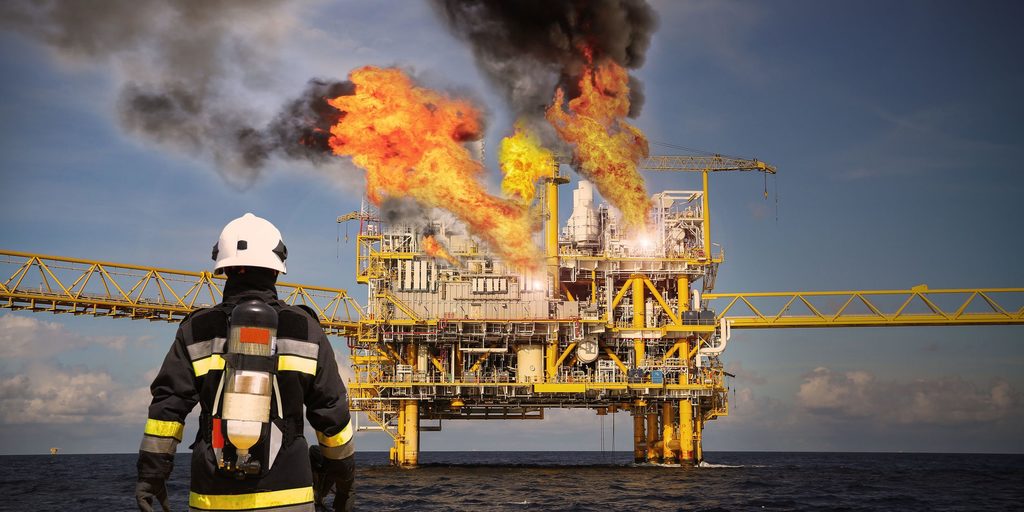
Dräger Marine and Offshore, marine and offshore services in the field of rescue and safety equipment, believes that the UK renewable energy and carbon capture sectors need to do more in order to avert safety incidents.
The call comes after independent research commissioned by the firm found that 63% of managers in the oil, gas, and renewables sectors outlined concerns in their organisation about the possibility of a major safety incident occurring over the next five years.

Discover B2B Marketing That Performs
Combine business intelligence and editorial excellence to reach engaged professionals across 36 leading media platforms.
The research is part of a new report on the impact of Covid-19, Brexit, and health and safety culture in UK workplaces and warns of growing concerns regarding these factors within the country’s quickly expanding renewable sector.
The warning was issued after a significant amount of businesses involved in the study reported that safety has already been adversely impacted by Covid-19, with two-thirds of managers (66%), reporting that safety training or investment within their company had been cancelled or delayed due to the pandemic.
Dräger Marine and Offshore marketing manager Richard Ryan said: “The slow pace of progress regarding safety standards in the UK’s renewable energy and carbon capture sector is becoming a major cause for concern, and it has been made worse by significant Covid-19 delays to safety training and safety-critical maintenance work.
“Whilst there are many positive aspects to the rapid growth seen in the UK renewable sector, the unprecedented pace of developments poses a risk to safety as regulations struggle to keep up,” Ryan said.

US Tariffs are shifting - will you react or anticipate?
Don’t let policy changes catch you off guard. Stay proactive with real-time data and expert analysis.
By GlobalDataRenewable energy and environmental initiatives such as carbon capture are often perceived as clean and therefore safe, but they also come with some risks and operational hazards.
For example, the operational hazards related to future re-purposing of decommissioned oil rig platforms for use within the UK are likely to be similar to those commonly faced – large numbers of people on remote platforms in a harsh North Sea environment, with high volumes of hazardous gases.
The gases might be different – hydrogen and carbon dioxide as opposed to methane and they may be pumped into the ground rather than being extracted out of it, but the potential for a serious incident is similar.
For this reason, the company urges for sufficient funding and attention to be given to safety in the sector.
“Whereas safety in the oil and gas sectors is now mature and ingrained in the whole operating culture, this is not translating across to renewable operations in all areas of the industry. It is vital amidst the current rapid growth of the UK’s renewable energy sector, that safety regulations keep up with the broader pace of developments.”
Dräger Marine and Offshore warns that aside from the obvious, lifesaving reasons why safety must catch up with broader progress in the UK’s renewables sector, there are other reasons for companies to pay attention to the concerns around the risk of a major incident.
The company study has shown that 68% of employees say that they would not work for an organisation that has had a major safety disaster in the last five years, with the figure rising to 72% in the under-35s category.
Meanwhile, 87% of managers in the oil, gas, and renewables sector shared that they think safety encompasses so much today that it requires a different approach and different skills to five years ago.



